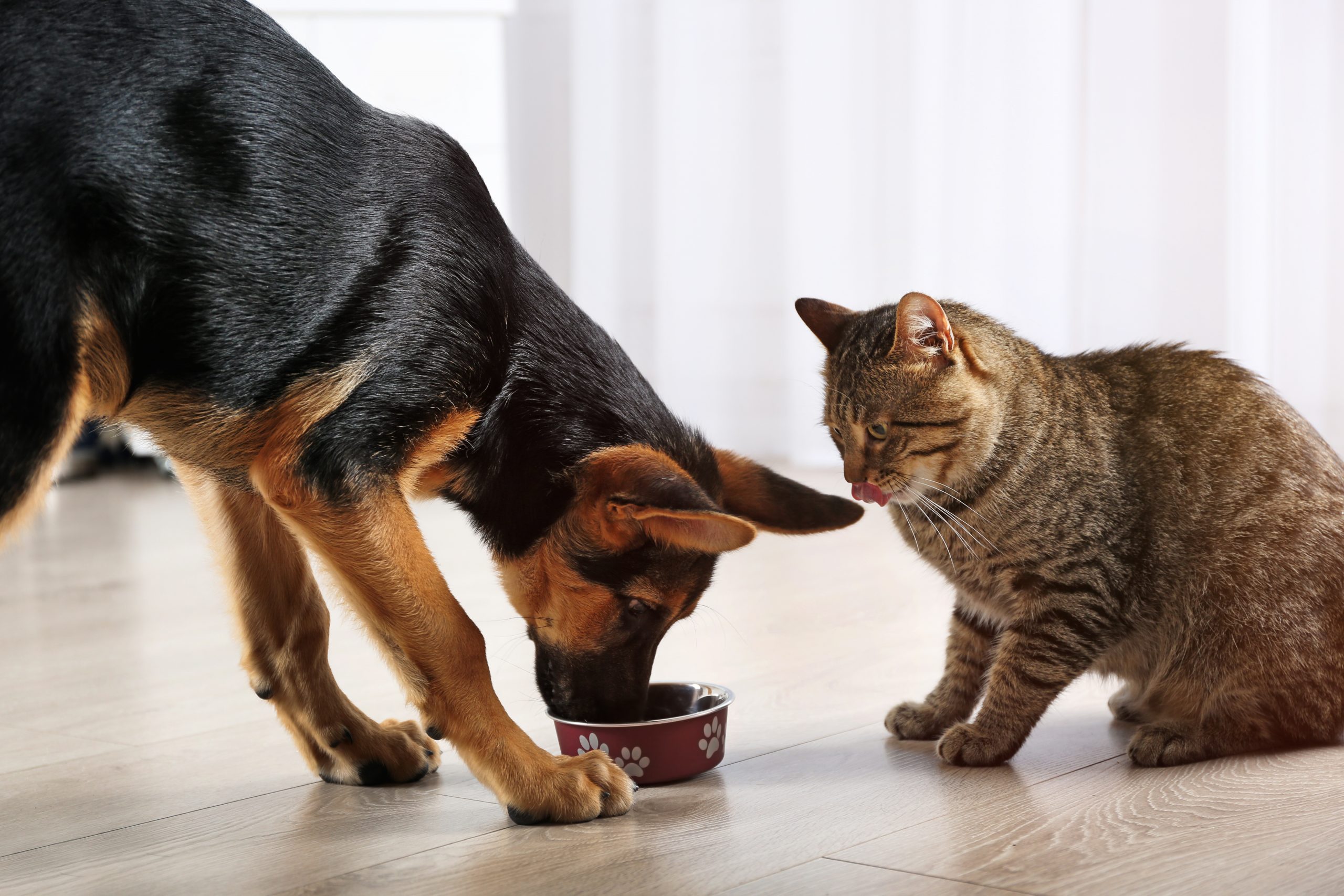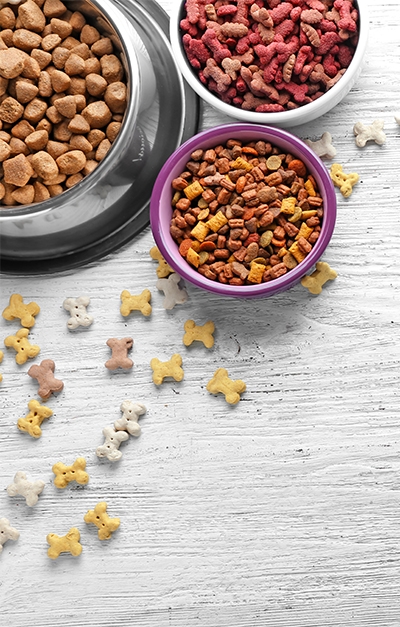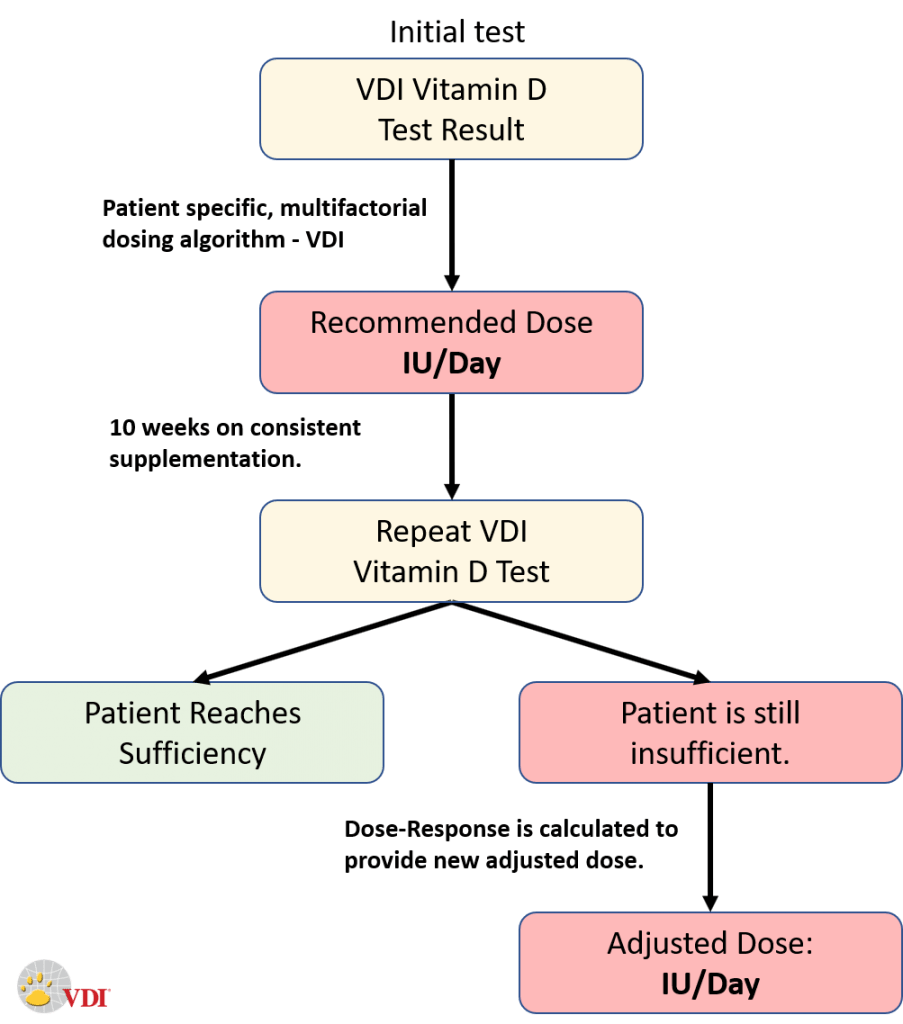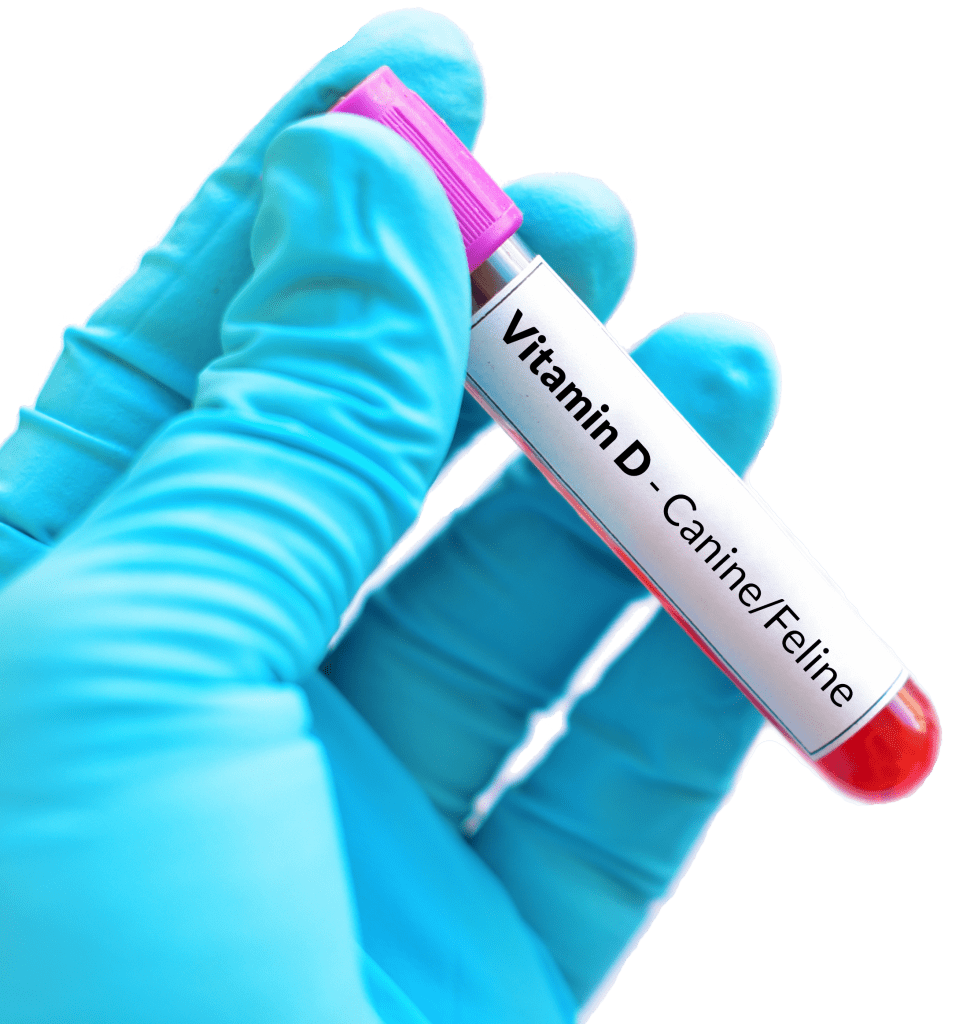
VDI Laboratory – Leader in Vitamin D Testing
Vitamin D shouldn’t be scary. Although the internet is abound with recalls and scary articles about toxicity, the bigger issue in a majority of cats and dogs is the pandemic of Vitamin D insufficiency.
Vitamin D is as important for your pet as it is for you. The only difference being that they can’t get it from the sun. Diet is the sole source of Vitamin D for your pet, and unfortunately most pet diets just don’t have enough. The good news is, identifying and correcting the problem is as simple as Test & Treat. Vitamin D evaluation should be included in your pet’s wellness or diagnostic workup as sufficient levels are important to their long term health. It’s the most important test you’re NOT doing for your pet, but should.
Table of Contents:
- Why Test?
- Does my cat/dog need tested?
- How often to test?
- Insufficient Vitamin D – Next Steps
- Did you know?!
- Learn More
- How to get your Pet Tested
Why Test Vitamin D
Vitamin D is one of the essential vitamins. Essential vitamins are those that are critical for biological function but cannot be made by the dog or cat. Although we call it a vitamin, it’s actually a powerful hormone. Vitamin D is so involved with different organ systems and processes, that it is often considered the most important hormone in the body.
Having sufficient Vitamin D allows your pet to maintain optimum health. A few of the major benefits for Vitamin D sufficiency:
Anti-Inflammatory
Vitamin D plays an anti-inflammatory role. Chronic inflammation leads to disease.
Boosts & Supports the Innate Immune System
The innate immune system is the first line of defense for the body, and strong active innate immunity wards of disease and pathogens.
Pro-Differentiating
Cell differentiation, becoming the right type of cell, is critical for proper function. Vitamin D plays a role in the differentiation process, helping direct cells to become the right cell. (Cancer happens when cells don’t become what they’re supposed to be)
Anti-Proliferation
Vitamin D sufficiency helps prevent excessive proliferation, a hallmark of cancer.
Deficiency is associated with:
| Chronic Renal Failure | Feline Tooth Resorption | Heart Disease |
| Hypercalcemia | Hyperparathyroidism | IBD |
| Infections | Inflammation | Kidney Disease |
| Atopic Dermatitis | Autoimmune Disease | Carcinoma |
| Hemangiosarcoma | Histiocytic Sarcoma | Lymphoma |
| Mast Cell Tumors | Sarcoma | Pancreatitis |
Does my dog/cat need tested?

Almost every dog and cat can benefit from evaluating their Vitamin D levels. Here are some examples of those pets that are more susceptible to Vitamin D insufficiency:
- New Diet or Recent Diet Changes
- Cats/Dogs over the age of 5
- Current inflammatory disease such as Cancer, Atopic Dermatitis, IBD, etc.
- Pet is on steroids or NSAIDs
- You are concerned about the long term health of your pet.
How often is testing needed?
Initial testing to determine Vitamin D level is the first step. Then if your pet is insufficient, it’s recommended to start supplementation or diet changes, then retesting in 2-3 months until sufficient Vitamin D levels are reached. After that, then it’s just yearly as part of the annual exam!

Insufficient Vitamin D – Next Steps
So you’ve decided to test, great! The next steps are simple. Once the lab results come back, we’ll evaluate whether a diet change is warranted or if simple supplementation is right for your pet.
Guidelines by VDI Laboratory give you a dosing recommendation specific to your pet to help reach and maintain sufficiency.
Depending on the results, and your plan for your pet’s care, there may be other suggested tests based on test levels. Those may include:
- Vitamin B12 (Cobalamin)
- Folate
- Magnesium
- Inflammation Test
Daily supplementation and a balanced and complete diet, will support your pet in living a longer healthier life.
Did you know?

Learn More
This blog has lots of articles on Vitamin D and nutrition. Take a look around and learn more about Vitamin D. You can also see a summary of the whole body of evidence by clicking here (yep, it’s sciency!)
How to Get Your Pet Tested

Ask your vet!
But not all Vitamin D testing is the same. VDI Laboratory is the leader in Vitamin D testing for companion animals. Benefits ONLY through VDI Laboratory:
- State-of-the-art testing technology
- Sufficiency Reference Ranges
- Patient Specific Dosing Guidelines
- Recommended supplements
- Affordable Testing.
Testing with VDI Laboratory is simple: have your veterinarian contact us at 805-577-6742 and we’ll give them all the information they need to submit a sample. No minimums, no contracts – as easy as sending a sample and getting a result. Feel free to contact VDI with any questions or concerns:
phone: 805.577.6742 | email: [email protected]
Vitamin D testing is available as a standalone test and as part of a wide range of wellness and acute care panels offered by VDI. Ask about comprehensive panels for essential vitamins, complete wellness, or acute care for your pet.
